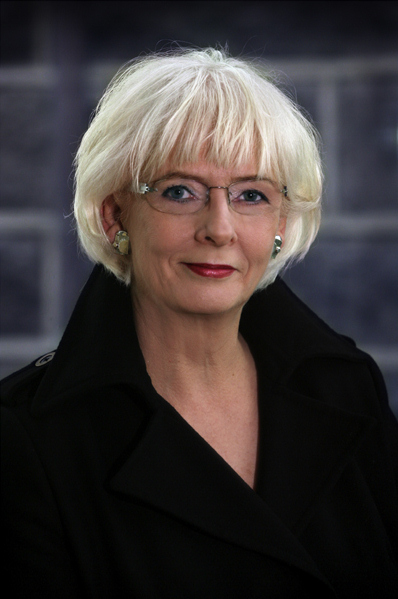Johanna Sigurdardottir

On 1 February 2009, Jóhanna Sigurðardóttir, Iceland ‘s longest serving MP, became Iceland ‘s first prime minister and the first openly gay prime minister in the world. She takes the leadership of government in the midst of a financial crisis that sparked protests in the streets of Iceland after the collapse of their banking system and the rapid depreciation of the currency, an economic meltdown that required intervention from the International Monetary Fund (IMF) and several European countries.
Iceland has previously had a female president, Vigdís Finnbogadóttir, who was elected in 1980. She served until 1996.
In September 2012, Jóhanna announced that she would retire from politics.
Early Life
Sigurðardóttir was born in Reykjavik in October 1942. She studied commerce before becoming a flight attendant for Loftleidir (now known as Icelandair) Airlines in 1962. After nine years, she went to work for a packaging company. During this time, she was married to a banker (now divorced) with whom she had two children. She began her political career as a union organiser at Icelandair. It is through her role as a union official that she entered national politics.
Political Rise
Sigurðardóttir was first elected to Iceland’s parliament, the Althingi, in 1978 as a member of the Social Democratic party. She is currently Iceland’s longest serving MP (she has been a member of the Iceland’s parliament for Reykjavík constituencies since 1978, winning re-election on eight successive occasions). In 1987, she was givern her first ministerial office, Social Affairs, and is credited with enacting policies that widened housing opportunities for Iceland’s poor and strengthened the social welfare system.
In the 1990s, when she lost a bid to head the party, she lifted her fist and declared “My time will come!” – a phrase that became a popular Icelandic expression. In 1994, she unsuccessfully contested the leadership of the Social Democratic Party. In 1995, she formed her own party, the National Movement, which won four parliamentary seats in the 1996 general election. The party merged with the Social Democratic Party, however, in 2001, along with two other centre-left parties to form the Social Democratic Alliance (SDA). The SDA ruled in coalition with the right-wing party, the Independence Party, after the 2007 election. Sigurðardóttir was renamed Minister of Social Affairs, and despite the financial crisis, had a high approval rate of 73%.
Prime Minister – and a change of direction for Icelandic politics?
With the collapse of the previous government of Geir Haarde (Independence Party), the first government in the world to lose power on account of the financial crisis, President Olafur Ragnar Grimsson formally asked Ms. Sigurðardóttir in January to lead a new caretaker government. National elections are scheduled for 25 April 2009.
Sigurðardóttir has signalled a change in the direction of Icelandic politics: “The people of this country must see that there is a new government in place which will defend their homes and rebuild the job market.” Sigurðardóttir has listed as her priorities:
- debt relief for vulnerable Icelanders
- to replace the central bank board (blamed for the banking collapse in Iceland)
- to establish a parliarmentary committee to explore the possibility of joining the European Union.
First Openly Gay Leader in the World
Sigurðardóttir established a civil partnership in 2002 with Jonina Leosdottir, 54, an author, playwright and journalist. While Sigurðardóttir’s status as the first openly gay leader has been applauded in gay and lesbian online media outside of Iceland, and made headlines across the world. It has not however had any effect in Iceland, where gay sex has been legalised since 1940; in 1996, civil partnerships were legalized, one of the first countries to do so.
Elections – 25 April 2009
The coalition government headed by Sigurðardóttir secured 34 seats in the 63-member parliament – an increase of seven MPs from the previous electionit resulted on both the highest number of first time MPs – 27 in total – and the highest number of women in parliament since voting began in Iceland in 1874.
References
- Le Figaro (2009), “«Sainte Johanna» au secours de l’Islande”
- The NY Times (2009), “Iceland Names New Prime Minister”
- BBC News (2009), “First gay PM for Iceland cabinet”.
- BBC News (2009), “Profile: Johanna Sigurdardottir”
- BBC News (2009), “Centre-left wins Iceland election”
- Wikipedia, “Jóhanna Sigurðardóttir”
- Generourban (2009), “Islandia 2009: elecciones, las mujeres lideran el rescate económico y político


